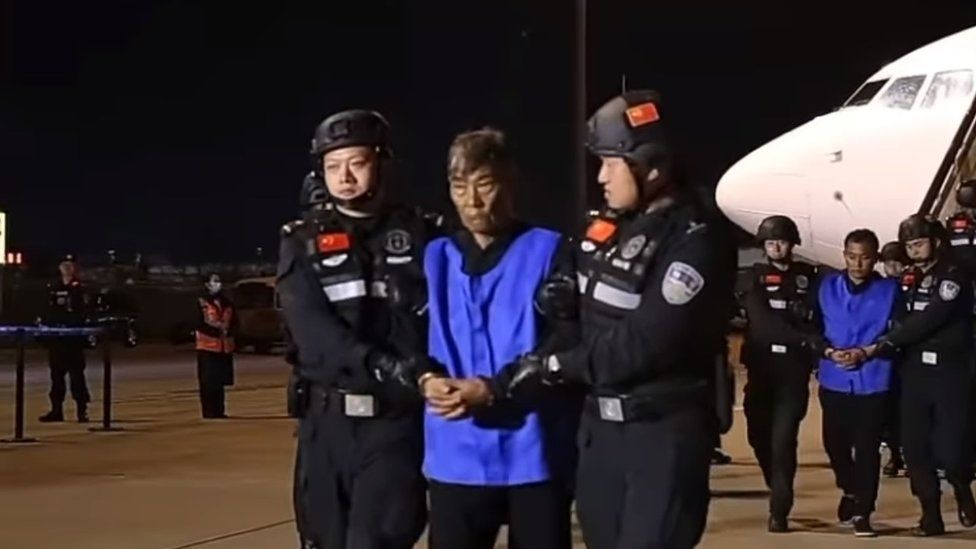
Myanmar has handed over three Chinese warlords to Beijing, who were notorious for running scam centres that trapped more than 100,000 foreign nationals.
Bai Suocheng, Wei Chaoren and Liu Zhengxiang led three of four families which ruled Laukkaing on Myanmar’s north-eastern border with China.
They were were taken to China on a chartered flight, with seven others.
This is the latest twist in the stunning downfall of the military-backed Chinese mafia in Myanmar.
And it’s yet another blow for Myanmar’s military regime, whose power is waning.
Myanmar’s army, which had been locked in a brutal stalemate since it sized power in early 2021, is now losing as it battles well-organised ethnic armies on more than one front.
General Min Aung Hlaing is known to have supported the Chinese mafia in Laukkaing. For years, China had been pressing his regime to rein in the scam centres but with little success.
China’s unease encouraged three insurgent armies to launch coordinated attacks against the military in late October last year – and hastened the fall of the mafia families.
The four families took over control of Laukkaing in 2009. Liu Guoxi, who led the fourth family, died in 2020.
Over the years, their reign turned a poor Burmese border town into a den of criminal activity, especially for lucrative scam centres. The UN estimates that hundreds of thousand of people have been trafficked into these centres across South East Asia.
“For a long time, multiple criminal groups… in northern Myanmar have openly organised armed fraud gangs and carried out telecom fraud crimes against Chinese citizens,” China’s Ministry of Public Security said on Tuesday. Telecom fraud refers to the scams that people trapped in the scam centres were being forced to run.
They are also accused of “multiple and severe violent crimes”, the ministry said, such as murder, assault and illegal detention.
In December, Beijing issued a public reward for these men and others in their network, describing them as “ring leaders” and sent a team to Myanmar to work with local authorities there.
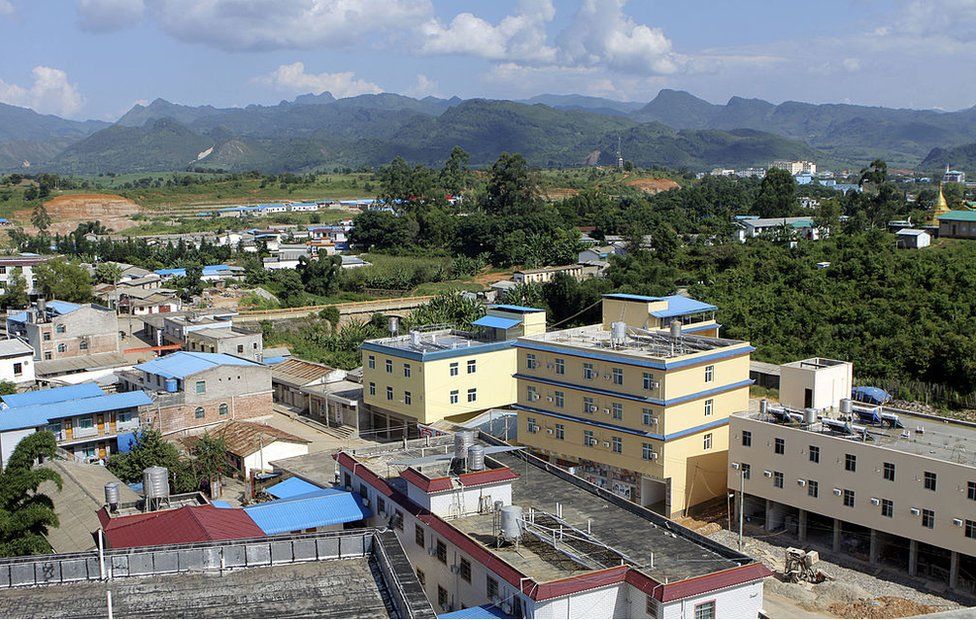
A vulnerable Myanmar army allowed China the opportunity to crack down on the scam compounds in Laukkaing.
About 44,000 people suspected to be involved in the scam centres have been handed over to China from Myanmar so far, the Ministry of Public Security said.
But China called Tuesday’s development – the arrest of the three heads of the mafia families – a “landmark achievement”.
Footage aired on Chinese-language TV channels show dozens of Swat (Special Weapons and Tactics Unit) officers escorting suspects down the plane in Kunming and into police vans.

The Godfather(s) of Laukkaing
By Jonathan Head
With their close ties to the military, the Godfather-esque “four families” in Laukkaing developed extensive business networks in Myanmar, with stakes in mining, energy, infrastructure and casinos in other countries like Cambodia. They established links with organised crime networks in Macao and south-eastern China.
Under them the remote, impoverished backwater of Laukkaing was transformed into a rowdy casino hub of gaudy high-rise towers and seedy red-light districts.
Initially developed to take advantage of Chinese demand for gambling, which is illegal in China and many other neighbouring countries, Laukkaing’s casinos evolved into a lucrative front for money laundering, trafficking and in particular for dozens of scam centres.
More than 100,000 foreign nationals, many of them Chinese, were estimated to have been lured to these scam centres, where they were effectively imprisoned and forced to work long hours running sophisticated online fraud operations targeting victims all over the world.
Laukkaing took on the character of a Wild West boom town, where anything goes and anything can be bought and sold. There were occasional gun battles between rival scam centres, and powerful people kept lions and tigers as pets.
Read more on the ignominious end to a story that began in the days of revolution, but turned into one of drugs, gambling, and greed.
Related Topics
-
-
9 November 2023
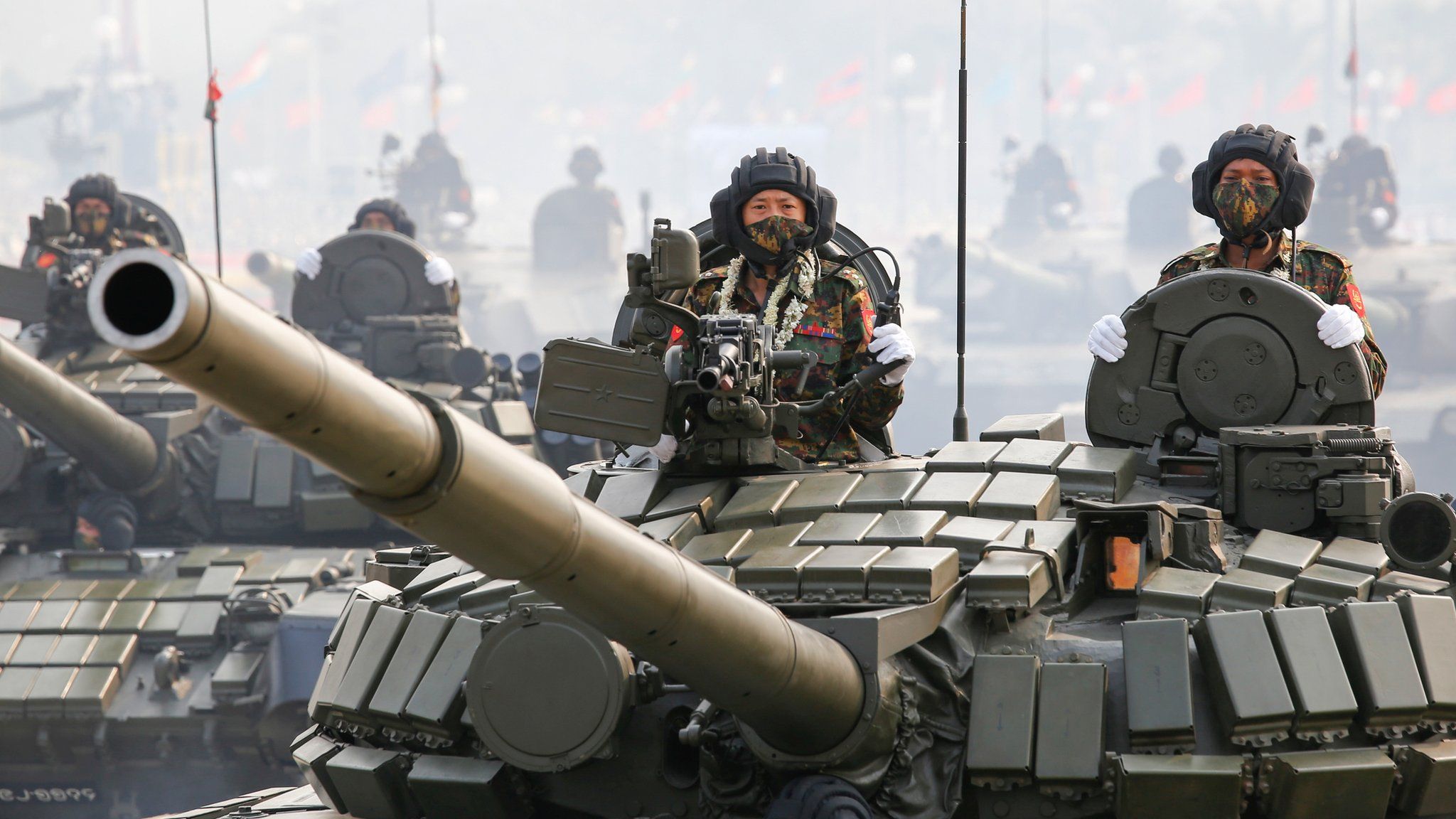
-
-
-
18 June 2023
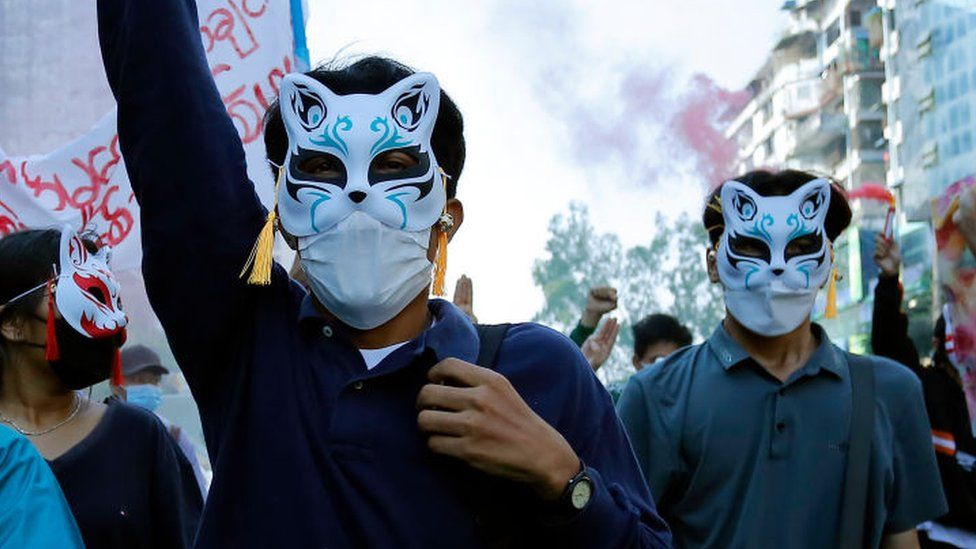
-
-
-
17 April 2023
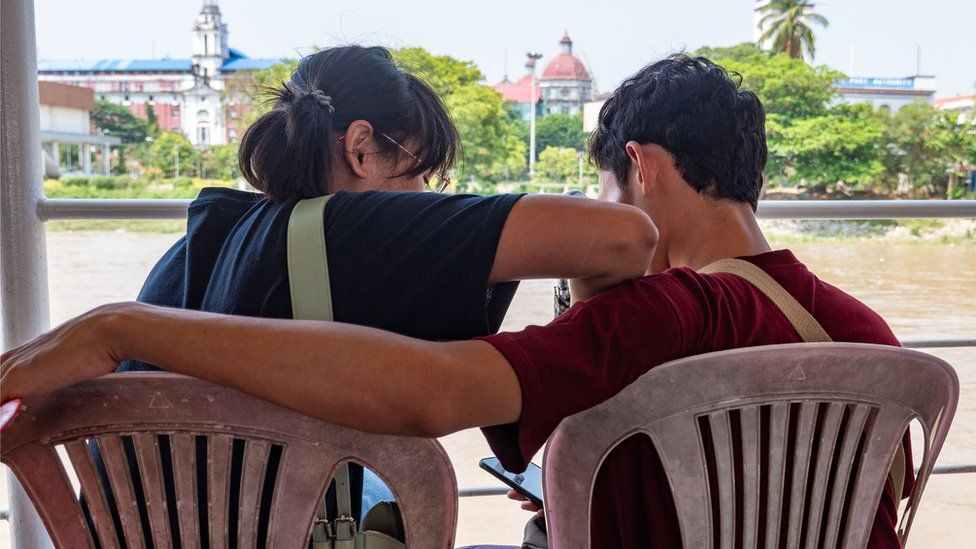
-
